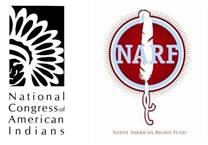 On Tuesday, March 22, 2016, the Supreme Court of the United States ruled in a unanimous decision written by Justice Clarence Thomas in favor of the Omaha Tribe of Nebraska in Nebraska v. Parker (14-1406) that an 1882 Act of Congress did not diminish the Tribe’s reservation. The judgment upholds the decision of the U.S. Court of Appeals for the Eighth Circuit.
On Tuesday, March 22, 2016, the Supreme Court of the United States ruled in a unanimous decision written by Justice Clarence Thomas in favor of the Omaha Tribe of Nebraska in Nebraska v. Parker (14-1406) that an 1882 Act of Congress did not diminish the Tribe’s reservation. The judgment upholds the decision of the U.S. Court of Appeals for the Eighth Circuit.
“The Supreme Court’s unanimous decision to uphold the Omaha Tribe’s reservation lands which were established by treaties is a substantial victory for Indian Country,” said NCAI President Brian Cladoosby. “The ruling in Nebraska v. Parker reaffirms long settled legal precedent protecting reservation lands from erroneous claims of diminishment. It also provides tribes with additional certainty when exercising jurisdiction, self-governance, and self-determination over their lands.”
John Echohawk, Executive Director of Native American Rights Fund, said, “I congratulate the Omaha Tribe and its attorneys on today’s unanimous decision. Every judge that heard this case, from the District Court all the way to the United States Supreme Court, has affirmed and followed long-standing legal rules protecting reservation lands. This tribe’s hard-won victory is also an important win for Indian Country.”
At issue in the case is whether the 1882 Act of Congress, which opened the western end of the Omaha Tribe’s reservation to settlement, diminished the boundaries of the reservation or opened the land to settlement while keeping the reservation intact.
Justice Thomas writing for the unanimous Court held that “[t]he 1882 Act bore none of [the] hallmarks of diminishment . . . [and] it is clear that the 1882 Act falls into another category of surplus land Acts: those that ‘merely opened reservation land to settlement and provided that the uncertain future proceeds of settler purchases should be applied to the Indians’ benefit.’”
Further, the Court found that the “subsequent demographic history” of the land being occupied by a majority of non-Indians “cannot overcome our conclusion that Congress did not intend to diminish the reservation in 1882. . . [a]nd it is not our role to ‘rewrite’ the 1882 Act in light of this subsequent demographic history.”
NCAI, along with NARF as co-counsel, filed an amicus brief in support of the Omaha Tribe, joined by many tribal Nations and other intertribal organizations. We congratulate the Omaha Tribe of Nebraska for this historic victory.
Additional Background on the case:
In 1854 and 1865, the Omaha Tribe entered into treaties with the United States to “cede, sell, and convey” land in present-day Nebraska while establishing a reservation for the Omaha Tribe. When the Tribe came back to Congress in 1872 to sell more land, instead of entering into a treaty for the land changing the reservation boundary, Congress authorized the Secretary of the Interior to open parts of western end of the reservation land to sell for the benefit of the Tribe.
With few parcels sold, the Tribe requested that Congress open more lands to sale in 1882. Under the 1882 Act, nearly 50,000 acres were opened for sale to both Indians and non-Indians and the City of Pender, Nebraska was established by non-Indian settlers.
When the Omaha Tribe amended its Beverage Control Ordinance in 2006 it applied it to all businesses located within the reservation, including retailers in the Town of Pender. The town brought suit, and the state of Nebraska joined the town, claiming that they were not within the boundaries of the reservation or Indian country, so the ordinance does not apply.
The Omaha Tribe won in both the federal district court and 8th Circuit, the Supreme Court’s ruling affirmed those decisions.
More blog posts

